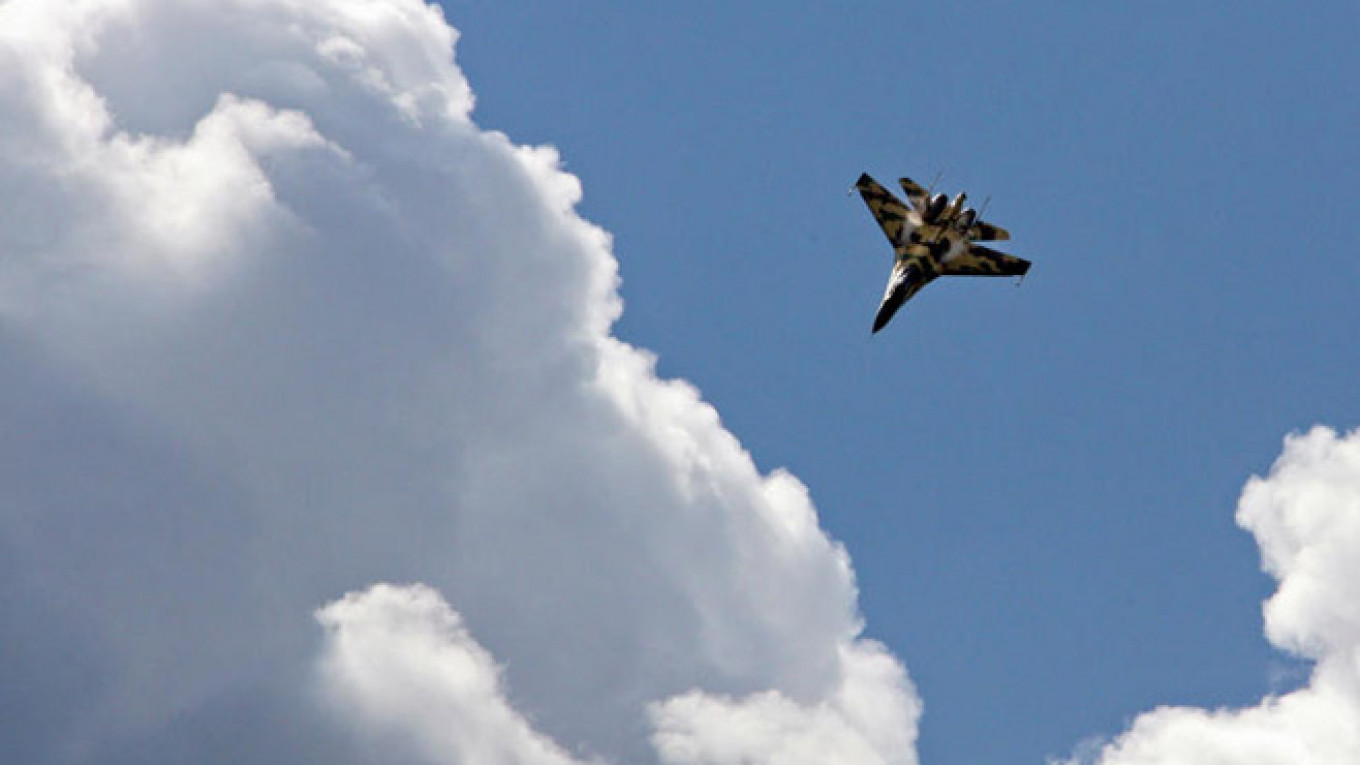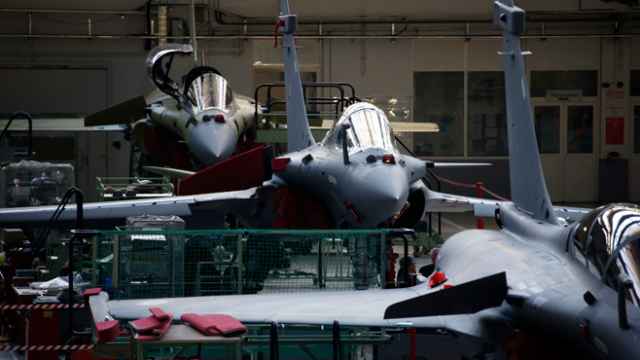Russia's Sukhoi Civil Aircraft company is considering pricing its Superjet 100 airliner in rubles for domestic clients, news agency TASS reported on Wednesday.
Airlines have been squeezed by the ruble's fall of over 40 percent to the dollar since last summer, weighed down by the falling price of oil and tough Western sanctions.
"Russian airlines desire [to pay in rubles] because their revenues are in rubles," TASS quoted Sukhoi's vice president, Yevgeny Andrachnikov, as saying on the sidelines of Aero India 2015, a major aerospace trade show in Bangalore.
"Therefore, we are working with each one individually on the possibility of providing them with financing [options] in the ruble equivalent [of the plane's market value]," he added.
The Superjet is a flagship product for Russia's civil aviation industry, which has not designed a new passenger liner since the Soviet era.
Built in collaboration with several Western aircraft firms by Sukhoi Civilian Aircraft, a subsidiary of the state-owned aerospace holding United Aircraft Corporation, the 110-seat plane is intended to compete in the medium-haul airliner market.
The Superjet began commercial flights in 2011 but has struggled to find customers — a result of strengthened competition from abroad, costly development delays and a fatal crash in Indonesia in 2012.
Aeroflot, Russia's national carrier, is the biggest operator of the Superjet. Having initially purchased 30 of the aircraft, Aeroflot announced last month that it had signed a contract for 20 additional aircraft to be delivered by 2017 in a bid to help facilitate growth in its domestic traffic.
Last year, the United Aircraft Corporation reported that the production rate of Superjets are increasing. While only 25 were built in 2013, the company reported 40 built last year, with a production target of 50 set for this year.
A Message from The Moscow Times:
Dear readers,
We are facing unprecedented challenges. Russia's Prosecutor General's Office has designated The Moscow Times as an "undesirable" organization, criminalizing our work and putting our staff at risk of prosecution. This follows our earlier unjust labeling as a "foreign agent."
These actions are direct attempts to silence independent journalism in Russia. The authorities claim our work "discredits the decisions of the Russian leadership." We see things differently: we strive to provide accurate, unbiased reporting on Russia.
We, the journalists of The Moscow Times, refuse to be silenced. But to continue our work, we need your help.
Your support, no matter how small, makes a world of difference. If you can, please support us monthly starting from just $2. It's quick to set up, and every contribution makes a significant impact.
By supporting The Moscow Times, you're defending open, independent journalism in the face of repression. Thank you for standing with us.
Remind me later.






